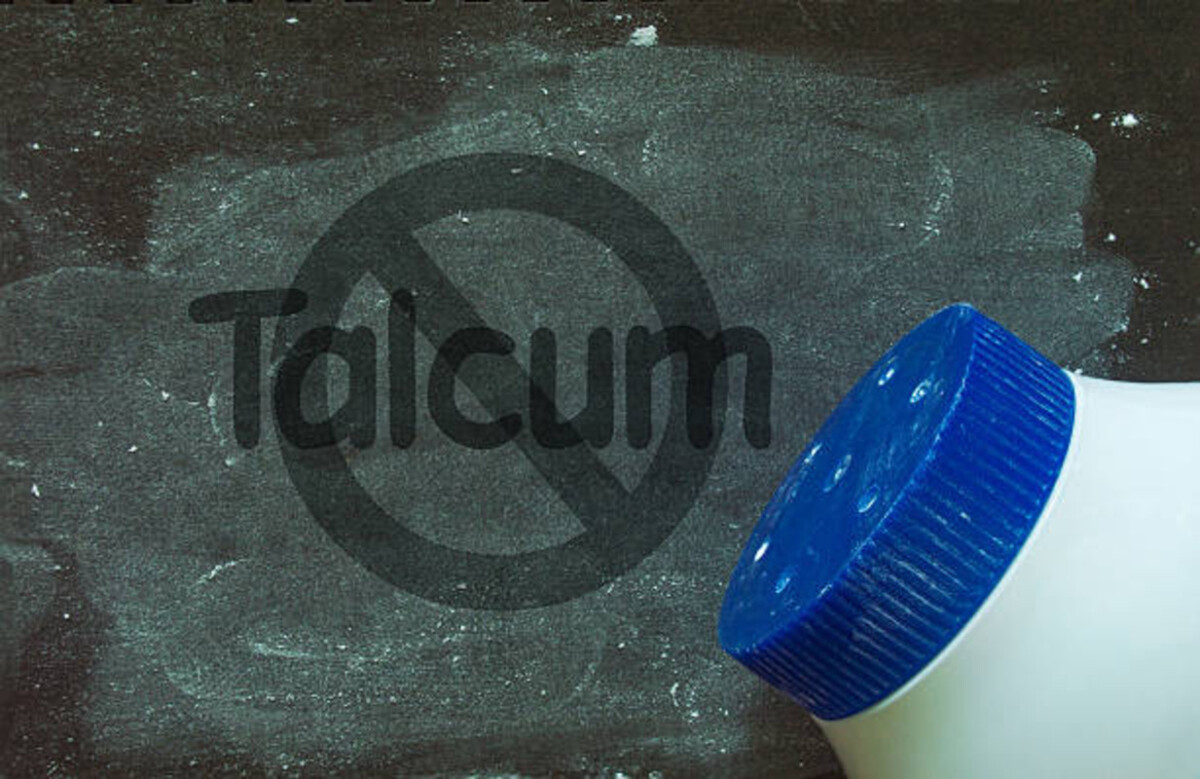Talcum Powder and Its Potential Risks
Talcum powder, derived from the mineral talc, has been a staple in households for decades. Commonly found in baby powder, cosmetics, and personal care products, it is praised for its ability to absorb moisture and reduce friction. However, recent studies and legal cases have raised concerns about its safety, particularly its potential link to serious health issues like ovarian cancer and respiratory problems.
One of the primary concerns is the possible contamination of talc with asbestos, a known carcinogen. Although modern regulations aim to prevent this, past users may still be at risk. Symptoms of health issues related to talcum powder use can take years or even decades to appear, making it essential for individuals to monitor their health and consider legal options if they suspect a connection.
If you have used talcum powder and are experiencing health problems, it’s important to evaluate factors such as:
- The duration of your talcum powder use
- The specific products you used
- Your medical history and diagnosis
Consulting a legal professional can help clarify whether you qualify for a lawsuit and guide you through the next steps.
The Connection Between Talcum Powder and Health Issues
The potential link between talcum powder and health problems, particularly ovarian cancer, has sparked widespread concern. Research suggests that long-term use of talcum powder, especially in the genital area, may increase the risk of ovarian cancer in women. This has led many to question the safety of these products and explore legal avenues for compensation.
Talc contaminated with asbestos poses additional risks, including respiratory issues and mesothelioma, a rare form of cancer. Consumers should be aware of these dangers, especially when using products marketed for feminine hygiene.
If you have regularly used talcum powder and have been diagnosed with ovarian cancer or mesothelioma, you may be eligible for a lawsuit. Key factors include:
- A medical diagnosis linked to talcum powder use
- A history of regular and prolonged use
- Evidence connecting your condition to the product
For more information on legal options, visit Legal Case Review.

Ready to connect with top legal professionals? Get immediate support— Call us at 877-550-8911.
Connect with Our Legal Team
Who Should Consider Filing a Talcum Powder Lawsuit?
If you or someone you know has developed ovarian cancer or mesothelioma after long-term talcum powder use, you may be entitled to compensation through a lawsuit. Many people are unaware of the potential dangers associated with talcum powder products. As scientific evidence continues to surface, more victims are seeking justice against major manufacturers for failing to warn consumers about the risks.
To determine eligibility for a lawsuit, consider the following criteria:
- Medical Diagnosis: A confirmed diagnosis of ovarian cancer or mesothelioma by a healthcare professional.
- Usage History: A record of frequent or prolonged talcum powder use, especially for feminine hygiene.
- Product Identification: The ability to pinpoint the specific talcum powder brand and product used.
- Medical Documentation: Evidence linking the diagnosed condition to talcum powder exposure.
It is crucial to act promptly, as every state has a statute of limitations that dictates the timeframe for filing a claim. Failing to file within this period could result in losing the right to seek compensation. A legal expert specializing in talcum powder lawsuits can provide guidance on eligibility and the necessary steps to take legal action.
Key Factors to Determine Eligibility for a Talcum Powder Lawsuit
Determining whether you qualify for a talcum powder lawsuit involves evaluating several key factors:
- Medical Diagnosis: A diagnosis of ovarian cancer or mesothelioma is essential.
- Usage History: Prolonged and regular use of talcum powder strengthens your claim.
- Product Identification: Identifying the specific brands and products used is crucial.
- Statute of Limitations: Be aware of the time limits for filing a lawsuit in your state.
For example, a study published by the American Cancer Society highlights the potential risks of talcum powder use, particularly when contaminated with asbestos. This external resource underscores the importance of understanding the risks and taking legal action if necessary.
Common Symptoms and Conditions Linked to Talcum Powder Use
Talcum powder use has been connected to several serious health conditions. If you have used talcum powder regularly, it is essential to be aware of the following health risks:
- Ovarian Cancer: Women who have used talcum powder for feminine hygiene over many years may face an increased risk.
- Mesothelioma: Exposure to asbestos-contaminated talcum powder can lead to this rare but fatal cancer.
- Respiratory Issues: Inhalation of talc particles over time may result in chronic lung disease and breathing problems.
- Endometriosis: Some women have reported a potential link between talcum powder use and this painful reproductive condition.
If you experience any of these symptoms, seek medical attention immediately. Keeping detailed records of your health conditions and talcum powder usage can significantly support a legal claim if you choose to pursue compensation.

Gathering Evidence for Your Talcum Powder Claim
Building a strong legal case requires collecting substantial evidence. If you are considering filing a talcum powder lawsuit, you should gather the following documents:
- Medical Records: Proof of diagnosis, treatments received, and any doctor’s notes connecting your illness to talcum powder.
- Usage History: A record of how often and for how long you used talcum powder.
- Product Information: Receipts, product packaging, or any documentation that proves the brand and type of talcum powder used.
- Witness Testimonies: Statements from family members or friends who can confirm your talcum powder use.
An experienced attorney can assist you in compiling and organizing this evidence to strengthen your claim and maximize your chances of receiving compensation.
Legal Options for Talcum Powder Victims
Victims of talcum powder-related health conditions have several legal options to seek justice and financial recovery:
- Individual Lawsuits: Filing a personal lawsuit can potentially yield higher compensation based on your specific damages.
- Class-Action Lawsuits: Joining a group lawsuit allows multiple plaintiffs to file claims against the manufacturer collectively, streamlining the legal process.
- Multidistrict Litigation (MDL): These cases combine similar lawsuits for efficiency while still allowing for individual settlements.
Each legal avenue has advantages and disadvantages. Consulting a lawyer specializing in talcum powder cases can help determine the best course of action based on your circumstances.
What to Expect During the Talcum Powder Lawsuit Process?
The legal process for talcum powder lawsuits can be complex. Here’s a brief overview:
- Initial Consultation: Meet with an attorney to discuss your case.
- Evidence Collection: Gather medical records, usage history, and other documentation.
- Filing the Lawsuit: Your attorney will file a claim outlining your case.
- Discovery Phase: Both parties exchange information and evidence.
- Settlement or Trial: The case may be resolved through a settlement or proceed to trial.
Your attorney will guide you through each step, ensuring you understand your rights and options.
Finding the Right Attorney for Your Talcum Powder Case
Choosing the right attorney is crucial for a successful outcome. Consider the following tips:
- Specialization: Look for lawyers experienced in personal injury or product liability cases.
- Reputation: Research online reviews and ask for referrals.
- Communication: Ensure the attorney is responsive and easy to communicate with.
- Fee Structure: Many attorneys work on a contingency basis, meaning you only pay if you win.
A strong attorney-client relationship can significantly impact your case’s success.
FAQs
1. What health issues are linked to talcum powder use?
Talcum powder has been associated with ovarian cancer, mesothelioma, and endometriosis.
2. How do I know if I qualify for a talcum powder lawsuit?
Eligibility depends on factors like medical diagnosis, usage history, and product identification.
3. What evidence do I need for a talcum powder claim?
Medical records, usage history, product information, and witness testimonies are essential.
4. What is the statute of limitations for talcum powder lawsuits?
The time limit varies by state, so consult a legal professional promptly.
5. How can a lawyer help with my talcum powder case?
An attorney can assess your eligibility, gather evidence, and guide you through the legal process.
Understanding wrongful death damages can provide some relief during a difficult time, ensuring that justice is served and financial burdens are eased.
Don’t wait to secure the legal representation you deserve. Visit Legal Case Review today for free quotes and tailored guidance, or call 877-550-8911 for immediate assistance.





